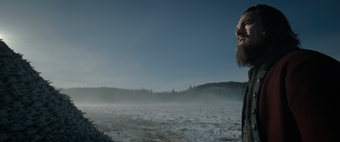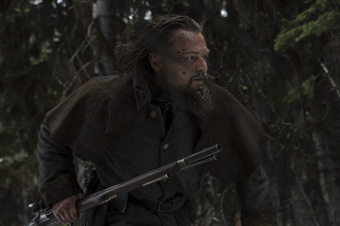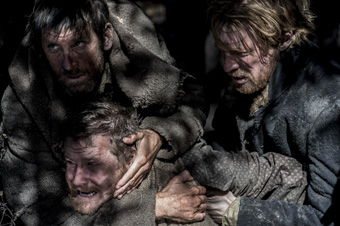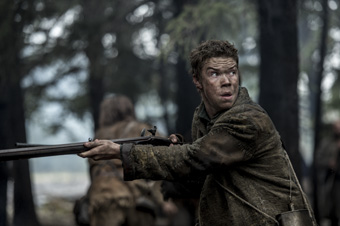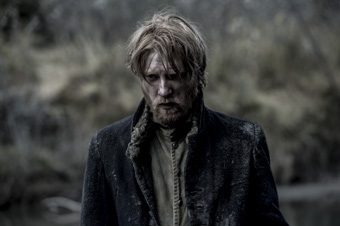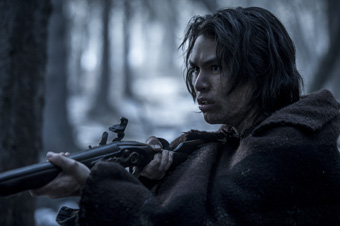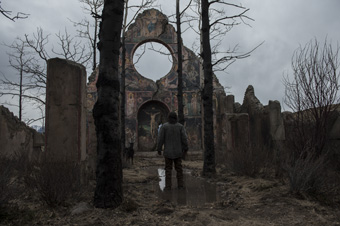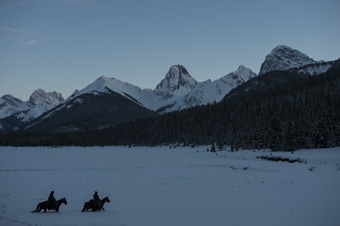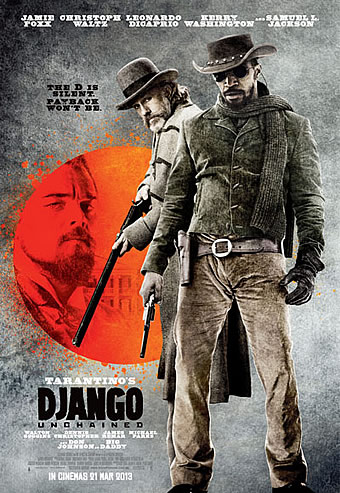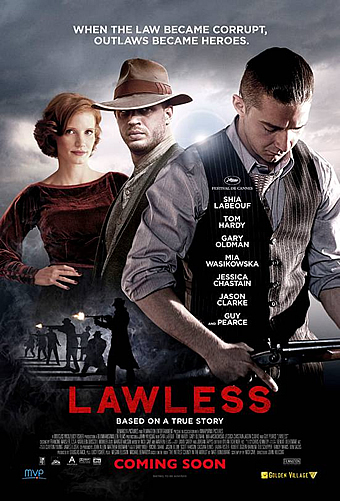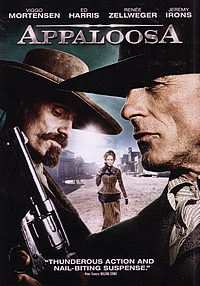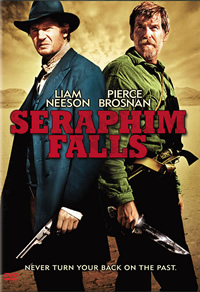THE REVENANT (2015)
Genre: Adventure/Thriller
Director: Alejandro González Iñárritu
Cast: Leonardo DiCaprio, Tom Hardy, Domhnall Gleeson, Will Poulter, Paul Anderson, Lukas Haas, Brendan Fletcher, Brad Carter
Runtime: 2 hrs 36 mins
Rating: M18 (Sexual Scene and Violence)
Released By: 20th Century Fox
Official Website: http://www.foxmovies.com/movies/the-revenant
Opening Day: 4 February 2016
Synopsis: Inspired by true events, THE REVENANT is an immersive and visceral cinematic experience capturing one man’s epic adventure of survival and the extraordinary power of the human spirit. In an expedition of the uncharted American wilderness, legendary explorer Hugh Glass (Leonardo DiCaprio) is brutally attacked by a bear and left for dead by members of his own hunting team. In a quest to survive, Glass endures unimaginable grief as well as the betrayal of his confidant John Fitzgerald (Tom Hardy). Guided by sheer will and the love of his family, Glass must navigate a vicious winter in a relentless pursuit to live and find redemption.
Movie Review:
‘The Revenant’ isn’t the first – and certainly won’t be the last – motion picture to celebrate the extraordinary power of the human spirit against the indomitable force of Mother Nature, but it may very well be the most harrowing and humbling experience you’ll have in a theatre. Based in part on Michael Punke’s 2002 novel that is itself inspired by the real-life fur trapper Hugh Glass, it is an utterly visceral Old West tale of survival and revenge, pitting a severely mauled Glass against the raw elements of the uncharted American wilderness as he makes his way back to seek vengeance on the men who had left him to die. But more than what it is about is how it is told, and there is no doubt that Alejandro G. Iñárritu’s latest is ultimately a masterclass in beauty and brutality.
Chief to that is Iñárritu’s absolute insistence on verisimilitude, a commitment to re-creating the harsh frontier life of 1823 that sees him bring cast and crew on a gruelling shoot through a dozen locations in Montana, the Canadian Rockies and Argentina, much of it on unspoiled tracts of land in order to ensure that the locations look and feel as remote and forbidding as they are supposed to. That devotion to authenticity is also reflected in his decision to shoot only with natural light even at frigid temperatures, conveying the hard and sweeping naturalism of the Great Plains without compromise or embellishment. The result is nothing short of breath-taking; in fact, together with his Oscar-winning ‘Birdman’ cinematographer Emmanuel Lubezki, Iñárritu has created a film so visually ravishing that it achieves a kind of spiritual transcendence.
That is probably also the aim of the surreal opening sequence, which recalls the ethereal beauty of a Terrence Malick as it reveals in the form of a dream that Glass had a native American wife and that he was once living among her Pawnee tribe. In that very sequence, we also hear the first words of Leonardo DiCaprio’s Glass: “It’s okay son, I know you want this to be over. I’m right here. I will be right here. But you don’t give up. You hear me? As long as you can still grab a breath, you fight. You breathe… keep breathing.” Their significance will only become clearer later on, and other subsequent elliptical flashbacks will also further establish that Glass’ wife was killed along with the rest of her tribe by white men years earlier, that also explains why Glass is so fiercely protective of his half-white half-native son Hawk (Forrest Goodluck).
Later on, Glass will watch helpless as a fellow trapper from Texas with a pancake-like tomahawk scar across his scalp named John Fitzgerald (Tom Hardy) knives Hawk to death and coerce another callow young hunter Jim Bridger (Will Poulter) to become his accomplice. That tragic turn of events caps a gripping first hour that sees Glass narrowly make it out from an attack by Arikara Indians on his squad of trappers led by Captain Andrew Henry (Domhnall Gleeson) at their riverfront encampment and subsequently mauled to the brink of death by a mama grizzly apparently protecting her two baby cubs. Much has been said about how the latter makes for astonishing yet excruciating viewing – and we can assure you that it does live up to the hype – but the former, filmed in a single shot tour-de-force, is just as vivid and savagely real.
That it all feels so relentlessly raw is in large part due to Lubezki’s amazing cinematography, employing long, unbroken, often handheld tracking shots to bring his audience right into the heart of the action or right alongside the characters. The latter is especially true in the second act, where Glass defies death to drag himself across mountains, rivers and rapids to exact retribution for the evil done to him. Iñárritu is in no hurry to have Glass confront his quarry, and for a good hour or so that will no doubt be a test of endurance for some viewers, we are treated to the very definition of visual poetry as snow whirls and billows around the icy landscape, twilight glowers on the horizon and embers dance like fireflies in the night. Lubezki’s images brim with soulfulness and grace, adding a hallucinatory texture to Glass’ elemental journey of survival – which, by the way, includes devouring the still-throbbing liver of a bison straight out of its body.
But we digress – there are grand issues that Iñárritu intends to address here, among them the notion of revenge and rebirth, though he doesn’t quite manage to do so as successfully. Glass’ will to survive is based singularly on the thirst to settle the score with Fitzgerald, but a slightly anti-climactic mano-a-mano ending aside, one is left guessing if and how his journey changes his nature as a revenant and whether therefore, when that thirst is finally quenched, his life has any purpose left. Because Iñárritu, who shares screenwriting credit with Mark L. Smith, refuses to dwell in sentimentality, Glass remains somewhat an inscrutable character, and we never quite relate to his desperation, pain and grief. Iñárritu’s tendency to cast his characters in good-bad dichotomies drains the film of the moral complexities hinted earlier on, such that Fitzgerald becomes defined by no more than his mercenary nature and the Arikaras who start off talking about honour and such are pretty much disposable.
It isn’t DiCaprio’s fault though that we are somewhat alienated from his character. On his part, there is utter dedication to mostly wordless performance. Indeed, DiCaprio throws himself mind and body into providing the portrait of a man filled with rage and searing indignation, as physical as it gets not just in how he grunts and gasps most of the time but also how he is called to perform while on the verge of hypothermia. Many have speculated that DiCaprio will finally get his Academy Award for the role, and if he does, it is every bit duly deserved. Of note too is his supporting actor Hardy, who is perfectly cast as the villain as he vanishes deep into the role to deliver a performance of absolute and utter perversity.
‘The Revenant’ isn’t a perfect film, but there is no other film this year that even comes close to matching its ambition, scope and ultimately achievement. Like we said, DiCaprio’s stripped down performance is completely stunning, as is every frame of Lubezki’s magnificent cinematography. And undeniably, this is Iñárritu’s work of art, a testament to his vision and uncompromising hard work. It is for all these reasons a must-see on the big screen, an epic of unparalleled visceral simplicity that no words can do justice to.
Movie Rating:




(Breathtaking in ambition, scope and achievement, 'The Revenant' is raw, gritty, uncompromising and utterly visceral filmmaking in telling an elemental tale of survival and revenge)
Review by Gabriel Chong
You might also like:
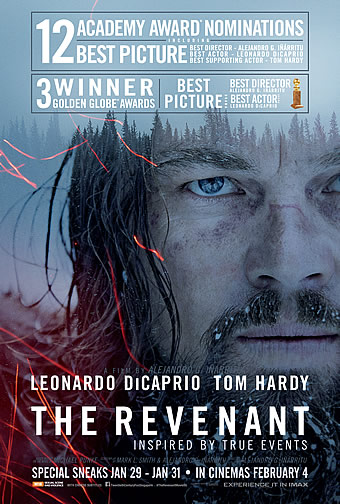
Movie Stills
